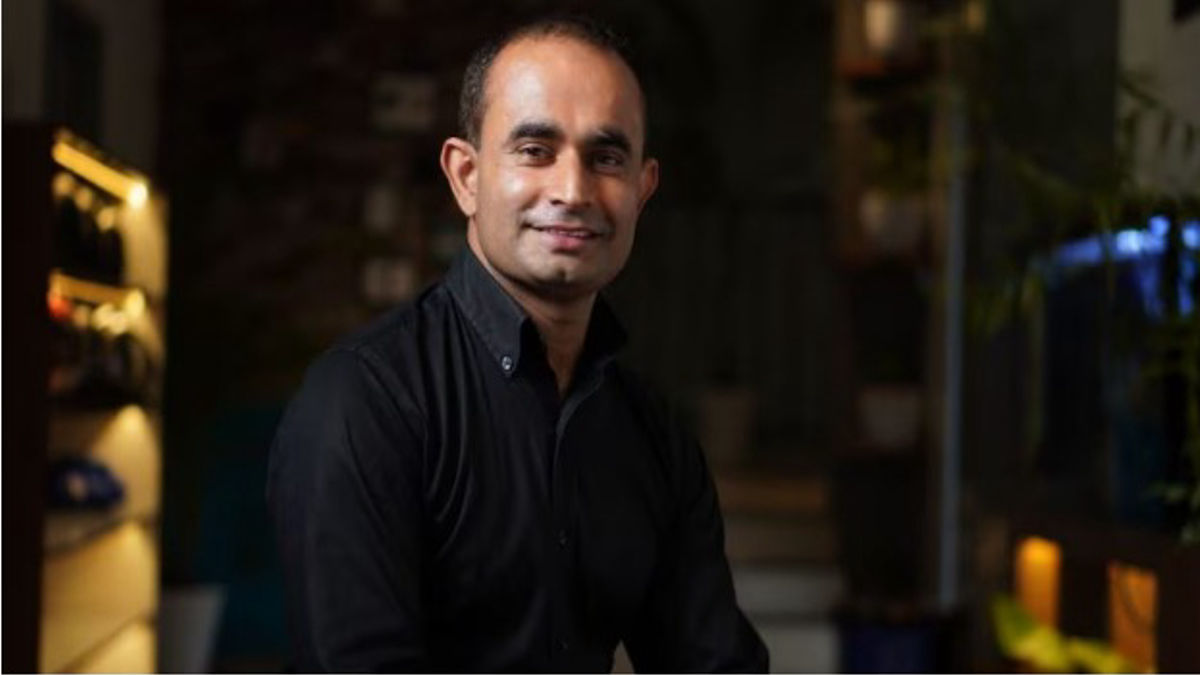Entrepreneurs who emerge from the trenches of their industries hold a rare advantage. Their insights are grounded in real pain points rather than hypothetical use cases, and they bring an instinctive understanding of what works and what doesn’t. This idea echoes the Upper Echelons Theory—executives interpret the world through their own experiences and values, making their background a critical factor in strategic decision‑making.
Study after study has shown that leaders with sector experience tend to navigate crises more adeptly and invest more wisely for the future. Such lived experience becomes a catalyst for innovation when paired with the right vision.
Sabeer Nelli, the founder and CEO of Zil Money, embodies this principle. His journey from running gas stations to building a fintech ecosystem reveals how personal pain points can become the spark for transformative solutions. Sabeer’s blend of operational knowledge, tech curiosity and continuous learning offers a playbook for leaders who want to turn their own experiences into products that empower small and medium‑sized businesses (SMBs).
Rolling Up His Sleeves: Cross‑Industry Roots
Long before he was a fintech founder, Sabeer was an entrepreneur in Manjeri, Kerala. As a teenager, he explored various ventures and learned the basics of risk, relationships and resilience. A degree from the University of Texas at Tyler followed, and an aviation license promised a different career—until a hearing issue forced him to pivot. Undeterred, he founded Tyler Petroleum in 2005.
Over the next decade, he transformed the business into one of Texas’s fastest‑growing private companies, with more than US$60 million in revenue and over 200 employees. Running fuel stations and convenience stores exposed Sabeer to the inefficiencies of business payments: delayed checks, mismatched accounting systems and razor‑thin margins. The experience would become the basis of his next venture.
Turning Pain into Platform
The “aha moment” came when Tyler Petroleum’s payment provider suddenly froze the company’s merchant account, halting transactions overnight. With cash flow on the line, Sabeer pulled together his finance, operations and engineering teams. They built an in‑house payment system that restored operations and laid the technical foundation for what would become Zil Money. That crisis helped him see payments through the eyes of a business owner rather than a banker. He realized that SMBs needed a single platform to send ACH payments, print checks, wire money, issue virtual cards and make cross‑border transfers without juggling multiple portals.
Every feature—international payments with real‑time currency conversion, check printing on demand, virtual cards for employee expenses—was built to address problems he’d faced himself. By choosing to bootstrap the company instead of seeking venture funding, Sabeer ensured product development stayed focused on solving genuine problems rather than chasing revenue at the expense of usability.
Why Industry Experience Matters
Industry experience gives entrepreneurs a unique advantage by providing insights to develop solutions that address sector-specific challenges. Here are a few advantages Sabeer Nelli gained from his experience, driving the innovation and success of Zil Money:
Informed crisis management: Entrepreneurs with deep industry knowledge can respond quickly when payment processes or cash flows are disrupted.
Balanced investment decisions: Firsthand knowledge helps leaders determine where to trim costs and where to invest for sustainable growth.
Diverse perspectives and better strategy: The Upper Echelons Theory explains that leaders interpret situations through their experiences and values. A diverse background, combined with industry expertise, shapes strategy and performance.
Stronger networks and smoother implementation: Industry veterans leverage relationships with vendors, regulators, and partners, which become crucial strategic assets.
Continuous Learning: Beyond Hands‑On Experience
Hands‑on knowledge can become obsolete if you stand still. Sabeer’s career underscores the importance of continuous learning. After scaling Tyler Petroleum, he pursued an advanced fintech education at Harvard University. He invests ahead of the curve, anticipating customer needs before they become crises, and encourages artificial intelligence for continuously learning new pathways and tools.
He invests in features that anticipate SMB pain points before they arise and embraces AI‑driven decision‑making to keep Zil Money agile. By listening to employees at all levels and participating in industry councils, Sabeer ensures that continuous learning, adaptation and curiosity shape every innovation. Memberships in bodies like Nacha, the US Faster Payments Council and the FedNow community keep him plugged into regulatory shifts and emerging technologies. This combination of practical insight and formal education ensures that Zil Money stays agile as fintech evolves.
Final Thought
True innovation doesn’t come from an ivory tower; it is forged in the crucible of experience and tempered by curiosity. Sabeer Nelli turned a cash‑flow crisis into a payments platform that today serves millions. By pairing his operational background with relentless learning, he shows that knowledge is not a static asset but a living practice.
As fintech reshapes commerce, the leaders who thrive will be those who blend their lived experiences with a commitment to growth—turning every pain point into an opportunity, and every lesson into a bridge between industries.

